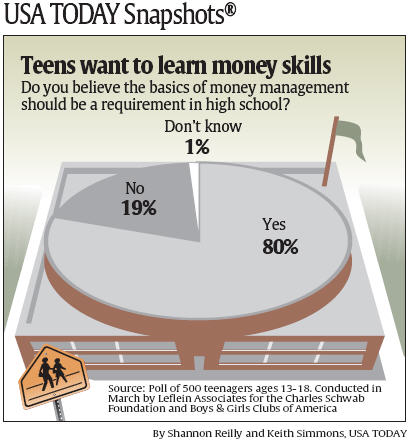Investment Tips for College Students

Easy Ways to Invest while in College
The majority of college graduates start their first months in the job market with low amounts of cash, no savings, and credit card debt (and this doesn’t even include school loans). This is a growing, widespread problem for freshly graduated college students. It is especially difficult during economic slowdowns when recent graduates finding a job is difficult.
One way to change the habit of overspending is to start saving and investing your money while you are still in college. Students like flexibility, so one option to help you save money is to allow more flexibility in the investments you make. Banks and financial institutions have recognized the great market need for investment products that offer flexible options. Currently, there are at least a dozen investment options that offer great flexibility while still giving a decent return on the investment.

Books on Amazon


Four Investment Ideas for College Students
1. Free Checking Account 0% APY
- Let’s start with the checking account. Checking accounts are the most flexible type of account available. You can deposit and withdraw funds whenever you want. Almost every student has a checking account, and those who don’t should open one. Most people pay a small monthly fee for their checking accounts while receiving no interest on their money. If you are trying to save money, it makes sense to have a free checking account. There are many banks, like WaMu, that offer free checking accounts with free checks. However, there is zero interest on your balance. But with no monthly fees, at least your balance is not shrinking like it does with banks that charge. If you are interested in a free checking account, but you don’t know which banks offer them, check out the closest bank branch to your campus. Usually big banks, like Wells Fargo or Bank of America, offer special deals to students. Free checking may not be a great investment, but at least you are not throwing your money away by paying account fees and stuff like that. In fact, you can take the money you save on fees and put it into savings.
2. Savings account 0.1% — 0.3% APY
- Another great option for students looking for flexibility in their investments is opening a savings account. Basic savings accounts don’t require a large initial investment. In fact, they work similar to checking accounts, but there are some limitations on how many times you can withdraw your money per month. Savings accounts usually don’t come with checks or debit cards, but you can link it with your checking account to make money deposits much easier. Many banks let you set up an automatic monthly transfer between accounts, which can make adding to your savings easier. For example, if you automatically have $25 or $50 automatically transferred from your checking into your savings every month, you will be find the savings begin to add up. It will be easier to save with an automatic transfer because it doesn’t leave room for excuses, like “I can’t put money into savings this month, maybe next month…” Traditional savings accounts don’t offer a great rate of return, with a low APY (Annual Percentage Yield) rate with your initial investment. Larger banks, like Bank of America, Wells Fargo, and WaMu, offer 0.1 – 0.3% APY.
3. Short-term CD – up to 3% APY
- Savings accounts are good when you are talking about a couple hundred dollars, but if you have larger amounts, like a $1000 or more, for savings, you probably want to put it somewhere safe where you won’t be able to spend it. You should consider a short term Certificate of Deposit account. With a CD, you can lock your investment for as long as you want. The time of the investment can vary from 1-120 months. Interest rates also differ on CD accounts. Traditional banks usually offer rates up to 3% APY, depending on the length of your deposit. The important thing to remember before opening a CD account is the inability to withdraw the money for a specific period of time. If you do withdraw the money before the maturity date, you will have to pay penalty fees.
4. Money Market Accounts 1% - 6% APY
- A Money Market Account, in my opinion, is the least popular form of investment for college students. This type of account works just like savings, but it requires a larger initial investment, which may be difficult or impossible for most college students to manage. But, hey, if your parents kicked in some extra cash this quarter or you started living on campus and sold your car, the Money Market may be an option for you. The requirement for a large initial investment gives you a return ranging from 1-6% APY versus the 0.1 – 0.3% APY on the savings account. The higher return rate definitely sounds appealing. It is important to note that a Money Market, while giving a high APY rate, doesn’t require us to “lock” our money for a period of time like a CD does.
You might find that none of these options suit you. That’s okay. If you really want to start saving, begin small. Even if your method of savings is a jar that you put coins into, it is a start. For more tips on saving, check out Tips for Saving Money & Paying Off Debt.









